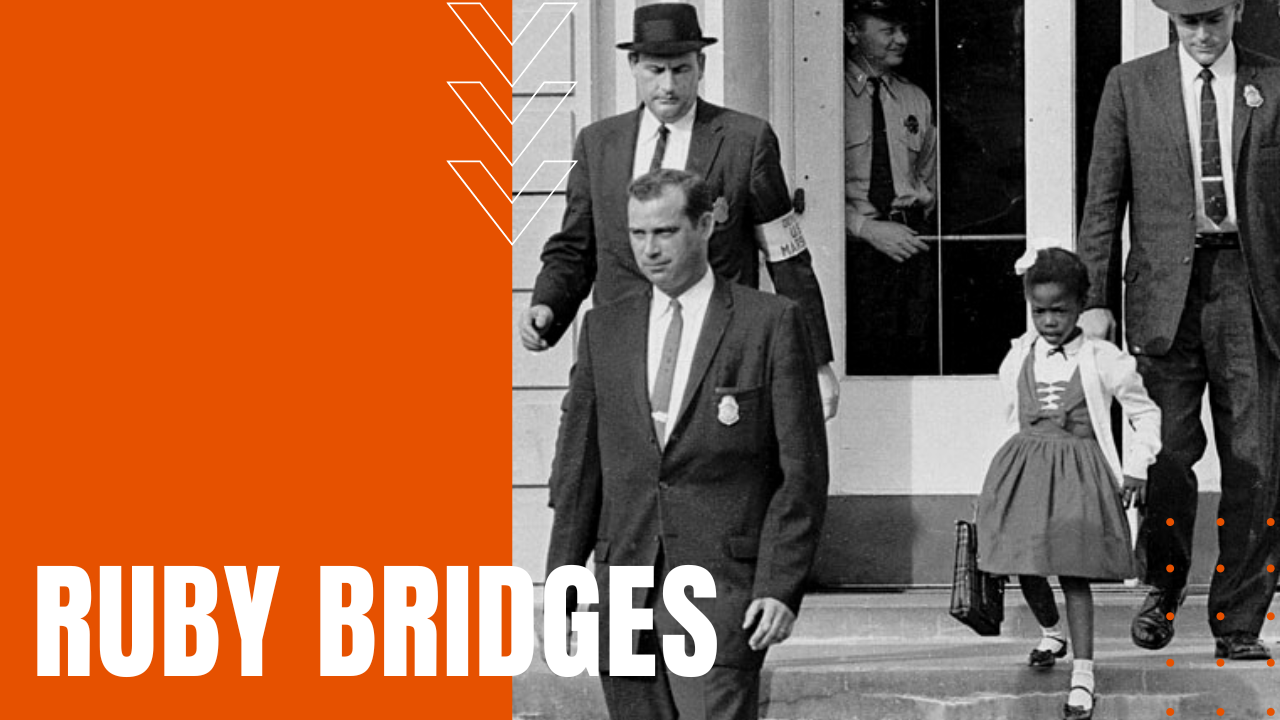Ruby Bridges

Born during the early years of the Civil Rights Movement—just three months and 21 days after the Supreme Court’s 1954 decision, Brown v Board of Education—at the age of five, Ruby Bridges attended a segregated kindergarten, until significant federal pressure forced the Orleans Parish School Board to admit Black children into all-white segregated schools.
Busting Up Segregated Schools
In early 1960, Bridges was one of six Black children in New Orleans who passed a test to determine whether they could attend the all-white William Frantz Elementary School—a test primarily designed to slow and impede desegregation efforts—two stayed at their old school, three transferred to another all-white school, while Ruby Bridges alone attended William Frantz Elementary.
Angry White Protesters
On November 14th, 1960, six-year-old Ruby and her mother Lucille approached Frantz Elementary despite a throng of angry white protesters, who threw objects and shouted angry racist epitaphs.
Ruby Shows No Emotion
Escorted into school by four federal marshals, years later, Charles Burks, one of the marshals in attendance, recalled that Ruby:
“showed a lot of courage. She never cried. She didn’t whimper. She just marched along like a little soldier, and we’re all so very proud of her.”
Charles Burks
White parents quickly began pulling their children out of classrooms, obliging Barbara Henry, a teacher from Boston Massachusetts to teach Bridges for an entire year on a one-on-one basis.
A day later, Methodist minister Lloyd Anderson Foreman was the first white parent to escort his five-year-old daughter past the angry mob, until one-by-one, white students returned to Frantz Elementary to resume their studies.
Repeatedly Harassed On Her Way to School
During the early days of segregation in New Orleans schools, as Bridges walked to school each morning, one white woman repeatedly threatened to poison her, while another held up a black baby doll in a coffin, until even the worst racist haters began to accept the inevitability of the federal government’s desegregation mandates.
Today, Ruby Bridges has published four books on her youthful story and the ongoing need for racial tolerance and acceptance, at the same time receiving many honorable degrees
Ruby Bridges Foundation
and awards along the way. Now chair of the Ruby Bridges Foundation, the group’s mission is to promote “the values of tolerance, respect, and appreciation of all differences.” “Racism is a grown-up disease,” Bridges maintains, “and we must stop using our children to spread it,” making Ruby Bridges, one of the leading voices in America’s slow embrace of racial equality.
